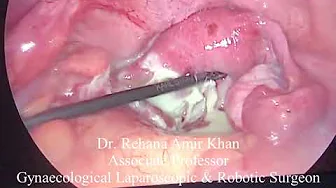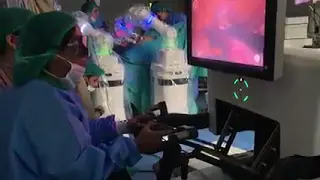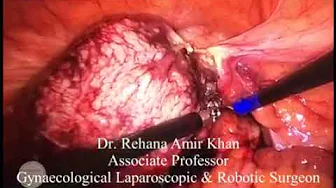Laparoscopic Tubal Sterilization
LAPAROSCOPIC TUBAL STERILIZATION
Consult the Best Gynecological Laparoscopic Surgeon in Lahore.
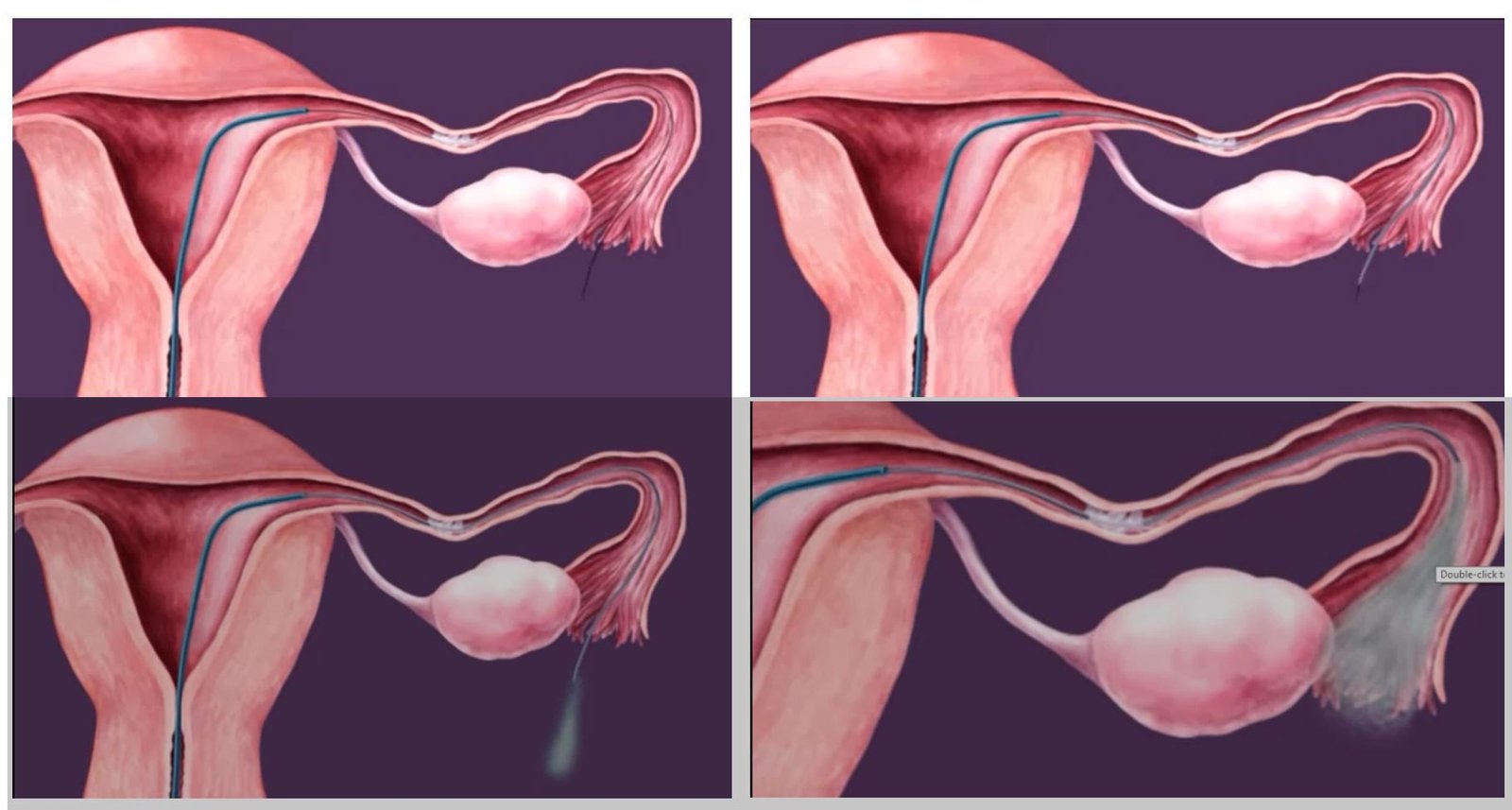
With years of experience in Gynecology, we are here to help
Our Specialist Gynecological Laparoscopic surgeons are specialized in all kinds of:
Are you ready to go for permanent birth control?
Then, Laparoscopic Tubal Sterilization is the best option for you…!!!!
But before going for a permanent birth control solution, we want you to learn completely about Laparoscopic Tubal Sterilization by the best gynecological surgeon in Lahore.
Tubal sterilization also known as tubal sterilization is a permanent form of birth control. During tubal sterilization, the fallopian tubes are cut, tied, or blocked to permanently prevent pregnancy.
Laparoscopic Tubal Sterilization prevents the passage of the egg from the ovary through the fallopian tube and prevents sperm from passing through the fallopian tube to the egg. Significantly, this procedure does not affect the monthly periods.
Additionally, Laparoscopic Tubal Sterilization can be performed at any time, including after childbirth or in conjunction with other abdominal procedures, such as a cesarean section. Most tubal sterilization procedures can be reversed but only by an expert laparoscopic surgeon but while opting the laparoscopic sterilization you should keep in mind that its a definite procedure.
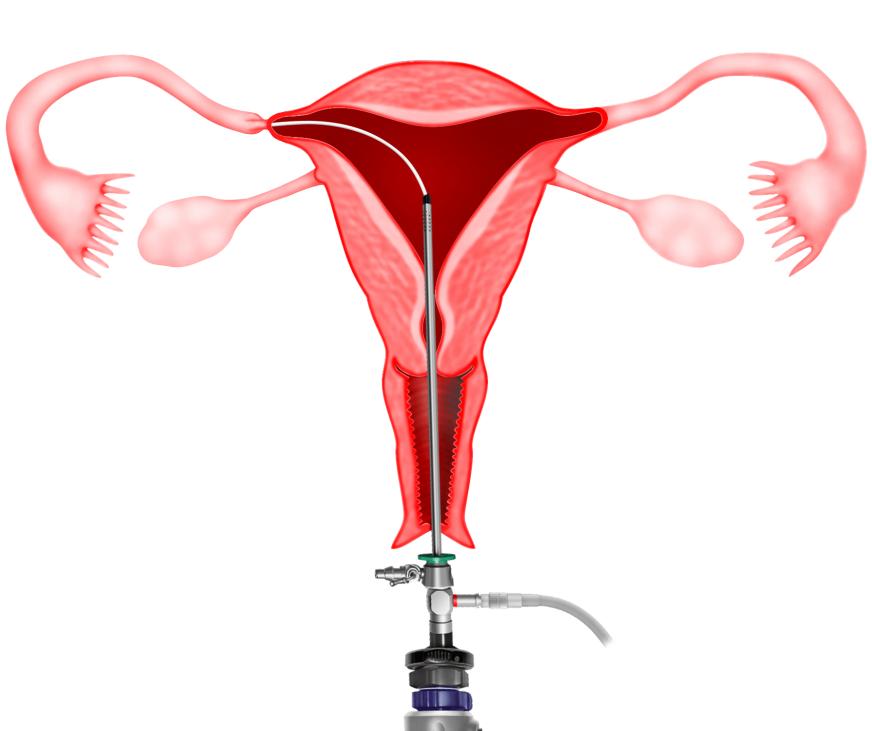
LAPAROSCOPIC TUBAL STERILIZATION
Why do you do Laparoscopic Tubal Sterilization?
Tubal sterilization is one of the most widely used surgical sterilization procedures for women. Tubal sterilization permanently prevents pregnancy, so you no longer need any type of birth control method and its side effect. However, it does not stop sexually transmitted diseases.
tubal sterilization can also reduce the risk of ovarian cancer, especially if the fallopian tubes are removed.
However, tubal sterilization is not suitable for everyone. Talk to our expert gynecological surgeon and get expert advice for you. And make sure you fully understand the risks and benefits of the procedure.
Your doctor may also discuss other options with you, including long-acting reversible birth control method such as an intrauterine device (IUD) or a contraceptive device implanted in your arm for five years.
Risks in Laparoscopic Tubal Sterilization
Laparoscopic tubal sterilization is a procedure that involves making an incision in the abdomen. Anesthesia is required. Risks associated with Laparoscopic Tubal Sterilization is only with general anesthesia otherwise in expert hands it’s a day case procedure with no or minimum risk and you can go home same day.
How to prepare for Laparoscopic Tubal Sterilization?
Before having tubal sterilization, your healthcare provider will discuss with you why you want to be sterilized. Together you will discuss factors that may have made you regret the decision, better not to be done in young patients and when your family is not complete.
We will also review the following with you:
LAPAROSCOPIC TUBAL STERILIZATION
What can you expect for Laparoscopic Tubal Sterilization?
Laparoscopic Tubal Sterilization can be done:
Before surgery
First of all, you require to take a pregnancy test to make sure you are not pregnant.
During surgery
Furthermore, if you have tubal sterilization in an outpatient setting. Then, a needle will be inserted or an incision made through your belly button so your abdomen can be inflated with gas (carbon dioxide or nitrous oxide). After that, insert the laparoscope into your abdomen.
In most cases, your doctor will make a second small incision to insert special instruments into the abdominal wall. Your doctor uses these tools to close the fallopian tubes by disrupting parts of the tubes or blocking them with plastic rings or clips.
Moreover, if you have your fallopian tubes tied after a vaginal delivery. Then, your doctor may make a small incision under your belly button to allow easy access to the uterus and fallopian tubes. If you had your fallopian tubes tied during a cesarean section, your healthcare provider will use an incision made to deliver the baby.
After surgery
If gas was used during tubal sterilization, it will be removed after the procedure is complete. You may be allowed to go home a few hours after the tubal sterilization procedure. Laparoscopic Tubal Sterilization immediately after delivery usually does not require a longer hospital stay.
Above all, after the surgery, you may feel pain or discomfort at the incision spot.
Before you go home from the hospital, your healthcare provider will discuss the management of any postoperative pain with you.
You can shower 48 hours after surgery, but avoid straining or rubbing the wound. Dry the incision carefully after showering.
Avoid heavy lifting and sexual intercourse until your healthcare provider tells you it is safe to do so. When you start to feel better, gradually resume your normal activities. Additionally, the sutures will liquefy and do not require to be removed. Check with your healthcare provider to see if you need a follow-up appointment.
If you are concerned that you will not be able to recover normally, please contact your doctor.
Call us immediately, if you have:
Although all these complications are very rare 0.5/1000 by an expert laparoscopic surgeon
Result after surgery
Tubal sterilization is a safe and effective method of permanent contraception. But it's not for everyone. Our best Gynecologist in lahore will discuss with you and decide that you are a candidate for this procedure or not.
LAPAROSCOPIC TUBAL STERILIZATION
Important Thing To Remember
If you become pregnant after tubal sterilization, you are at risk for an ectopic pregnancy. This means that the fertilized egg is implanted outside the uterus, usually in the fallopian tube. Ectopic pregnancy requires immediate medical attention. Pregnancy cannot last until delivery. If you think you could become pregnant at any time after tubal sterilization surgery, contact your healthcare provider right away.
Keep in mind that while tubal sterilization can be reversed but only by and expert laparoscopic surgeon
With years of experience as a Gynecological Laparoscopic surgeon in Lahore; we have successfully treated thousands of patients who are now enjoying their lives with their loved ones.


